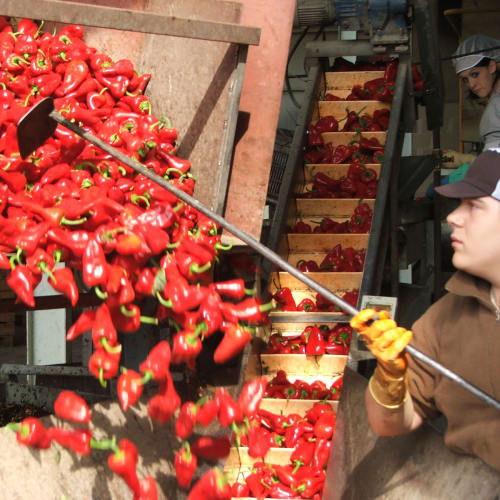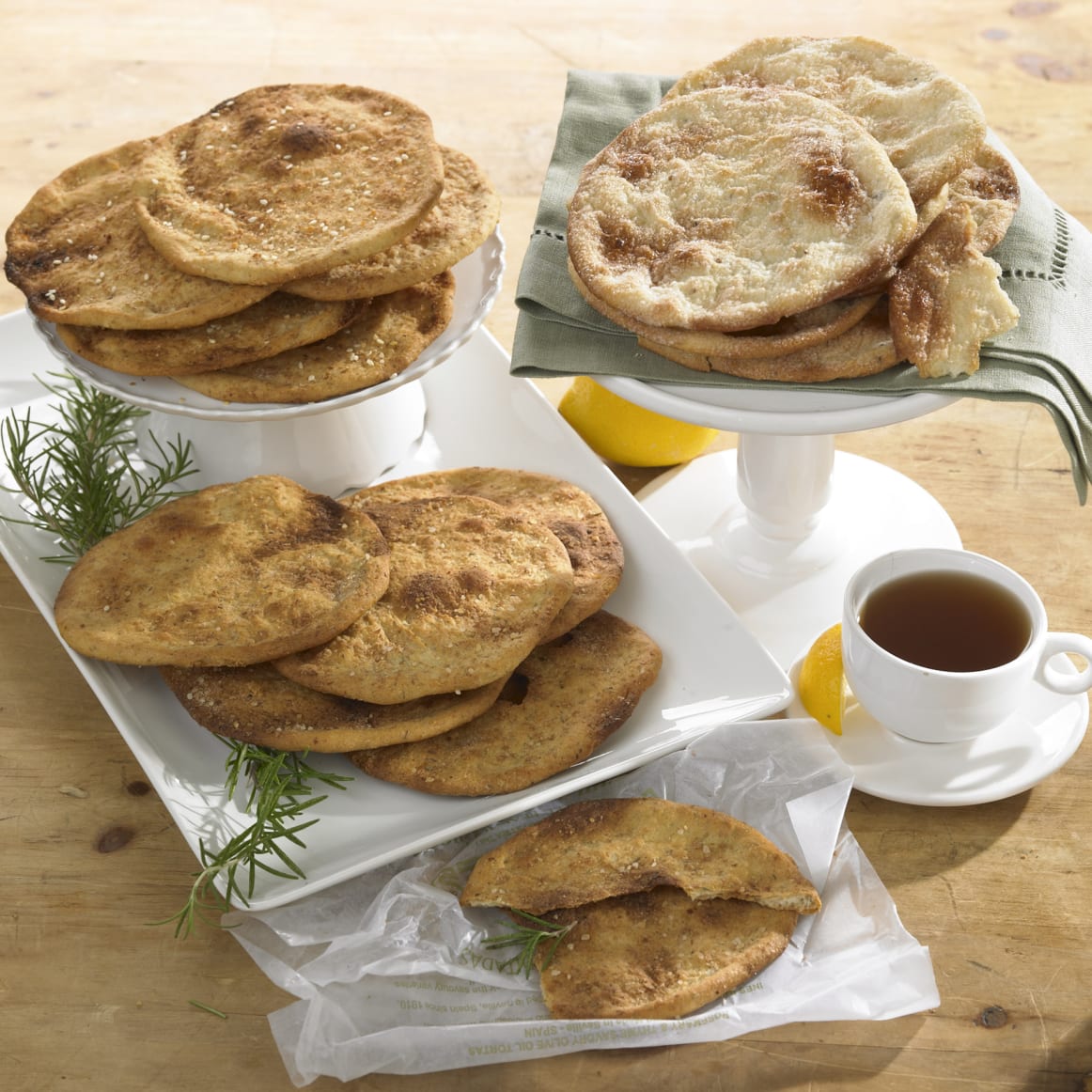Three Kings Sale - Up to 40% Off! Shop Sale
Authentic and Natural
January 2004




¡Feliz Dia de los Tres Reyes!
We are catching our breath at Tienda, now that the Christmas rush has subsided, and the Three Kings have left their gifts (after pausing to feed their camels from the straw they found in the little Spanish children's shoes!) Thanks to your enthusiastic support Tienda had another banner year -- despite the disruption of historic hurricane Isabel, which left us surrounded by large fallen trees and without electric power for more than a week. My favorite hurricane story is how, in the aftermath of the devastation, a Tienda friend here in Williamsburg turned misfortune into a fiesta by setting up his free-standing paella grill and serving a huge paella to his hungry neighborhood which was without electricity.

Now is our favorite time when we do what we really love -- selecting artisan products from the Spanish countryside to share with you. As I surveyed the possible products we might select, I was reminded of another trait that contrasts the North American and Spanish cultures. I discovered that in Spain there are sixteen different certifications of organic (they call it "ecological") products. There is a separate set of standards for each of the autonomous regions, except one!
The reason for this is that Spaniards do not automatically think of themselves as part of a national unit, as we do when we proudly fly the Stars and Stripes. Their identity is in terms of their family roots and their ancestral region. Rather than employing a generic national term (as we would "American"), Spaniards are apt to identify a product by its local source. For example: Queso Zamorano or Manchego is cheese made in Zamora or La Mancha; Pimentón de La Vera is paprika grown in the tiny river plane of La Vera; Turrón Jijona o Alicante is made in the small town of Jijona, Alicante; or jamón de Jabugo is Iberian ham cured in the village of Jabugo).
In contrast we feel it makes sense to have a unified standard for the entire nation, so we recently passed a law defining which products could claim to be "organic." Standardization is an efficient way of ordering commerce for a vast area such as the United States, and we have perfected this approach with national brands, hotel chains and fast food outlets, for example.
But what makes us treasure Spanish cuisine is that portion of Spain's food supply which is industrially inefficient. "Artisan" or "home-made" is not just an advertising slogan printed on the outside wrapper -- many of our products are truly made by hand. Women in rural Sevilla still wrap each dessert crisp in waxed paper, as they have for over 100 years. A father and his sons actually roll out the figs and dates for our almond cakes. Farmers truly drive their tractors laden with peppers to the drying station and then to the mill. Men in the olive groves actually spread out a tarpaulin before hitting the fruit laden trees with a stick to loosen the ripe olives.
So in yet another way our two cultures meet in Tienda. In rural Navarra our friend still personally organizes the local women to hand-peel each delicate roasted piquillo pepper, as they have for several years past. Yet through the marvelous technology of the Internet and UPS you click a mouse in California (or Idaho or Tulsa -- and in a matter of a few days you are savoring these peppers which you have stuffed with bonito. Sometimes we actually can have the best of both worlds! ¡Prospero Año Nuevo! May you and those you love prosper in this New Year.
Your friend,
Don

